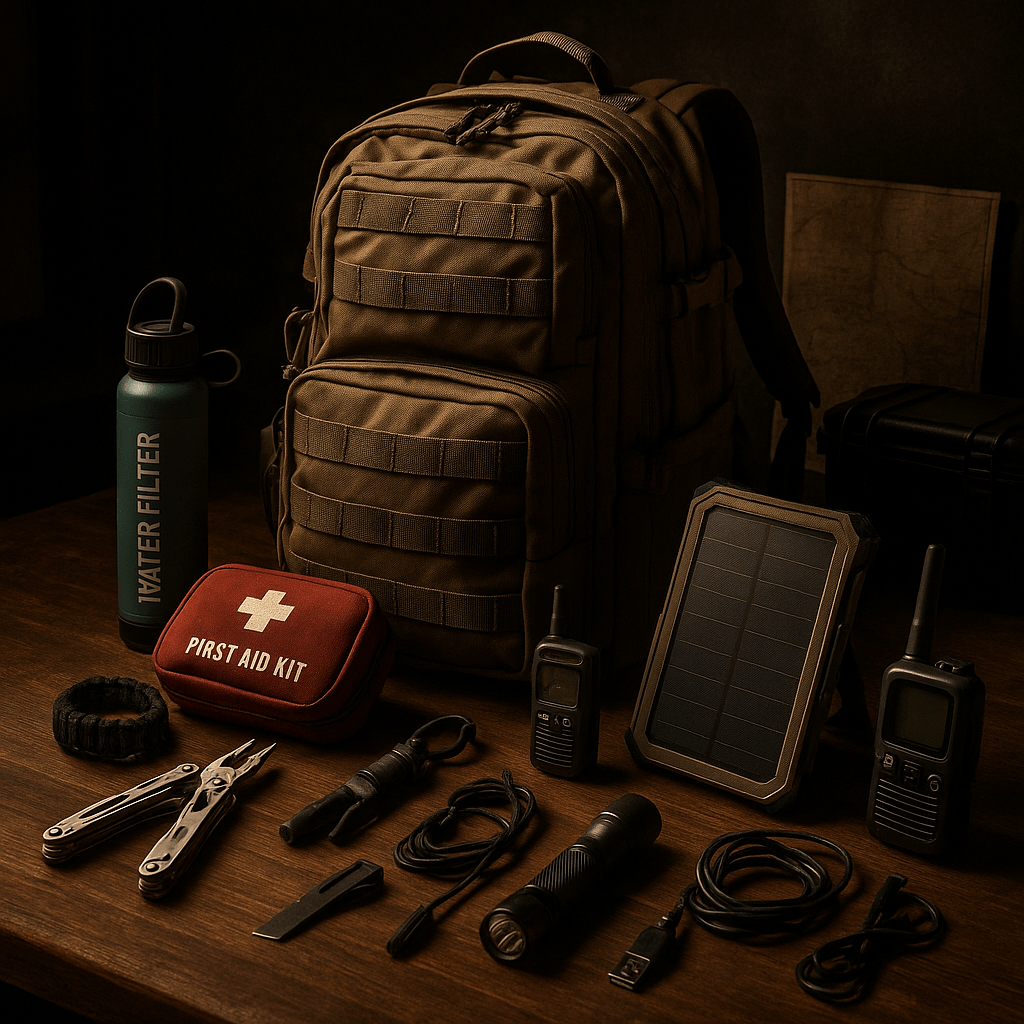How to Build a 72-Hour Emergency Kit for Any Disaster
 When disaster strikes, every second counts. Knowing how to build a 72-hour emergency kit for any disaster can make the difference between panic and preparedness. Your emergency kit should provide you and your family with enough supplies to survive for three full days without outside assistance.
When disaster strikes, every second counts. Knowing how to build a 72-hour emergency kit for any disaster can make the difference between panic and preparedness. Your emergency kit should provide you and your family with enough supplies to survive for three full days without outside assistance.
Why a 72-Hour Emergency Kit Matters
Emergencies often come without warning. Whether it’s a natural disaster like a hurricane or a man-made event like a blackout, having an emergency kit for disaster gives you peace of mind. The first 72 hours are critical, as emergency services may be delayed or unavailable.
What to Include in Your Emergency Kit for Disaster
Water and Hydration
- Store one gallon of water per person per day (for drinking and sanitation).
- Use sealed containers or consider emergency water storage solutions.
- Include water purification tablets or a portable filter.
Food Supplies
- Pack non-perishable items like energy bars, canned meat, fruit, and nuts.
- Choose high-calorie, shelf-stable foods.
- Include a manual can opener.
Shelter and Warmth
- Emergency blankets or sleeping bags
- A tent or tarp
- Extra clothing, including warm layers and rain gear
First Aid and Medications
- A complete first aid kit
- Personal medications (at least a 3-day supply)
- N95 masks and hand sanitizer
Tools and Safety Items
- Flashlight with extra batteries or a hand-crank version
- Multi-tool or Swiss army knife
- Waterproof matches or a lighter
- Local map and compass
Communication and Documents
- Battery-powered or hand-crank radio
- Emergency contact list
- Copies of IDs and insurance documents in a waterproof bag
Hygiene and Sanitation
- Moist towelettes, trash bags, and plastic ties
- Toothbrush, toothpaste, and soap
- Feminine hygiene products
Where to Store Your Emergency Kit for Disaster
Keep It Accessible
Store your emergency kit in a location that’s easy to grab—near your exit or in a designated go-bag.
Make Multiple Kits
Have kits in your home, car, and workplace. Disasters don’t always strike when you’re at home.
Maintain Your 72-Hour Emergency Kit for Disaster
Check and Refresh Supplies
- Replace expired food and water every 6–12 months.
- Test flashlights and radios monthly.
- Review the kit seasonally and update clothes and gear.
Customize for Your Needs
- Include baby supplies if needed.
- Don’t forget pet food and care items.
- Adjust contents for medical conditions or disabilities.
Final Thoughts on Your Emergency Kit for Disaster
Building a 72-hour emergency kit is one of the simplest and most effective ways to protect yourself and your loved ones. You now know how to build a 72-hour emergency kit for any disaster—so don’t wait until it’s too late.
Start small, stay consistent, and prepare today.
Ready.gov Emergency Supply List
Take action now: Start gathering your emergency supplies this week. Your future self will thank you when every second matters.